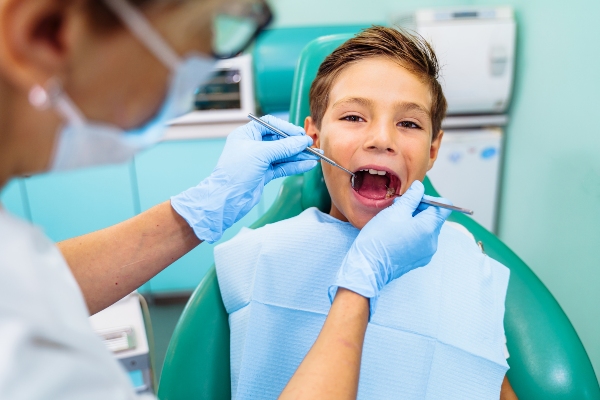 Though rewarding, parenting is often difficult. One of the most difficult aspects of parenting that you will encounter early in your child’s life is teething. Fortunately, a pediatric dentistry professional can help you understand what to expect and, more importantly, give you advice on how to ease your child’s pain during this challenging time in his or her life.
Though rewarding, parenting is often difficult. One of the most difficult aspects of parenting that you will encounter early in your child’s life is teething. Fortunately, a pediatric dentistry professional can help you understand what to expect and, more importantly, give you advice on how to ease your child’s pain during this challenging time in his or her life.
4 facts about teething from a pediatric dentistry professional
Though a necessary and momentous stage of any child’s life, teething is often a major source of discomfort, stress, and helplessness for new parents and their little ones. While parents cannot entirely eliminate a child’s discomfort during the process, they can ease it a bit — and achieve peace of mind — by brushing up on the basics of teething.
1. Signs of teething manifest long before the first tooth erupts
Some babies never exhibit signs of teething. However, most do. Many of these signs are universal in all babies and manifest a couple of days to a few weeks before the first tooth erupts. The tell-tale signs of teething are as follows:
- Drooling
- Fussiness
- Fever
- Swelling of the gums
- Tender gums
- Changes in sleep patterns
Parents should anticipate these symptoms and not panic if they arise. However, if any symptoms become excessive, parents may want to consult a doctor or pediatric dentistry professional.
2. Teething often begins between 6 and 12 months
Though there exists a wide variability in the ages at which babies start teething, for many babies, the first tooth will erupt between six and 12 months. Some babies, however, are earlier teethers and get their first teeth as early as three months, while other babies require intervention from their pediatric dentists to help the first tooth emerge.
3. Massaging sore gums can provide immense relief
Though several innovative and costly products exist that claim to help relieve symptoms of teething, the best relief measure is free, and that involves massaging the gums. Parents can identify the source of pain by looking for swollen and tender gums. They can then help to ease the pain either by using clean fingers to gently massage the area or by offering their little ones solid teething rings or a wet or frozen washcloth. Babies also find immense relief — and joy — with frozen fruit and yogurts. Parents who go this route, though, should encase the food in safe products designed to prevent choking.
4. Many teething products are dangerous for babies
Finally, it is important for new parents to understand that many older teething-relief methods and products have been proven unsafe. Parents should avoid any products that contain liquids or gels, as either can pose a choking hazard to babies. Products that contain benzocaine, such as the much-beloved Orajel, should also be avoided, as benzocaine has been known to cause serious and life-threatening health conditions. Amber necklaces are also a no-no, as they present both choking and strangling hazards. Finally, parents should avoid any teething tablet that claims to be “homeopathic,” as chances are they contain belladonna, a natural but toxic painkiller.
Conclusion
Teething is a tough time in any young family’s life. However, armed with the right information and with the help of a compassionate pediatric dentistry team, your family can make it through this milestone without shedding too many tears.
Request an appointment or call Hudson Valley Pediatric Dentistry at 845-363-4177 for an appointment in our Middletown office.
Recent Posts
A child dentist can help your child achieve better dental and general health. Regular visits allow your child to get used to dental checks, tools, and equipment. Dental fear disappears, and the young patient can continue having a bright, painless smile. Here are what parents like you should look forward to during child dentist appointments.Choosing…
Cavity treatment for kids is essential for a child’s oral health. Dental decay can cause discomfort, causing the child to lose focus at school. It can even result in low self-esteem and malnutrition. Treating cavities can improve your child’s general health. Here are effective techniques for cavity treatment for kids.There are cases when fillings cannot…
Parents play a crucial role in their children's tooth care by ensuring their children get started on the right path to optimal dental health. This involves overseeing children's tooth care at home while also helping them develop healthy dental habits and ensuring they see a pediatric dentist regularly.Parents will need to keep their child's mouth…


